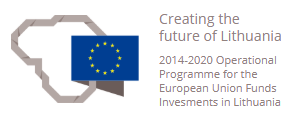Project idea
The overall objective of this project is to explore the role that Christian religious identities and institutions play in the national socialization of individuals within the context of migration in the European region. Focusing on a case study of contemporary Lithuanian immigrants in Norway and employing qualitative interviewing methodology, I will examine the ways in which Christian religious identities and institutions facilitate/obstruct the integration/social isolation of the migrants in the host country from the perspective of the migrants and the representative of the religious authorities. Much of the research concerning religious and national identities of contemporary migrants in Europe focus on Islam as well as the social and political integration of Muslims. However, certain European states – especially after 2004 enlargement of the European Union – similarly to Lithuania and Norway experience significant levels of either emigration or immigration of individuals self-identifying as Christians. Yet, the knowledge about the influence that religious identities and institutions have for social integration and national identity construction among Christian migrants in Europe is very scarce. Therefore, through this project, new empirical data that will contribute to a better understanding of the identities and integration of contemporary Christian migrants within Europe will be gathered and analyzed.








